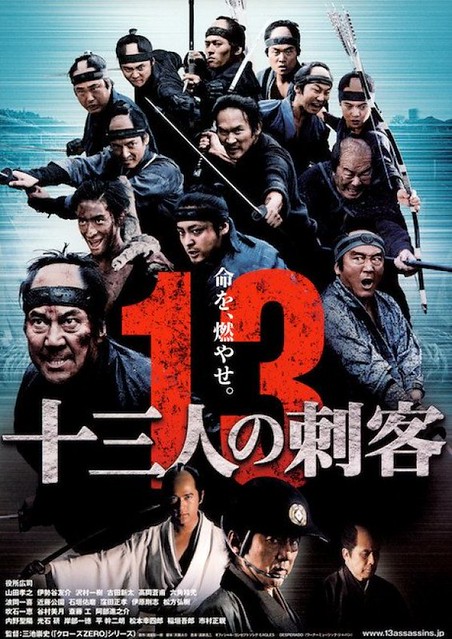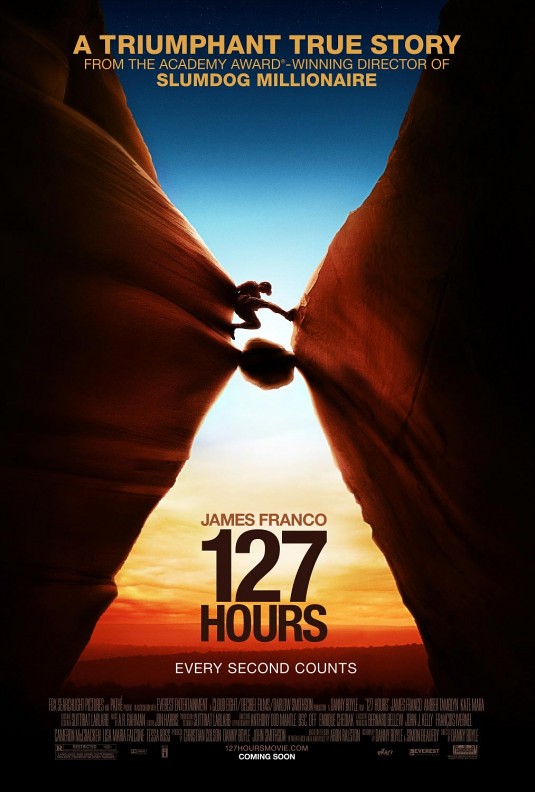
Jen (the girlfriend) put it best when halfway through the movie she leaned over and whispered, "Now these are real Tough Guys." The Japanese are not, in modern times, thought of as a particularly tough people, but boy, what a history. They weren't fooling around. The stakes don't get higher than a hero (or band of heroes) who have willingly committed to giving their lives to a cause, to a leader. In movies the hero says that kind of thing all the time -- I would die for you, for that belief, for her, for my country -- but it's all talk. The hero is in no real danger of dying, and he might as well know that when he makes these oaths, because we know it when he makes them. Sure, it sounds so cool, but the men and women who swear by it don't mean it -- or if they do, they don't mean it with the kind of brutal "I will cut my guts out with my own knife on a matter of principle" way the samurai meant it in Feudal Japan.
It seems to me like Miike is making a real case here for just what that kind of oath means. He's exploring the reality and the gravity of swearing an allegiance so powerful you would die for your boss unflinchingly. He pits two old comrades against each other, and though they remain bitter adversaries to the very end, their rivalry isn't borne out of some ethical or philosophical difference -- in fact both men repeatedly imply that, but for the twists of fate that make up their lives, they could easily have ended up on the other's side in all this. The chase- and battle-to-the-death that Shinzaemon and Hanbei see to the end (and arguably beyond) is borne out of literalizing the samurai's oath, notoriously in a time of peace. A sadistic evil lord (Miike also takes the usually-all-talk ivory-tower cruelty that goes along with that notion to new extremes) is Hanbei's master. Therefore, it doesn't even matter that Hanbei opposes him philosophically, is disgusted by him personally and morally, or that he literally fears for the future of Japan if his lord succeeds; he will fight to his dying breath savagely and furiously to protect him and to help him succeed. That's what a good samurai does.
13 Assassins doesn't flinch or hold back in the morality of this -- or the mortality. It's Takashi Miike, after all. And actually, if anything, apart from some early-on imagery that was hard to take, I found most of the action and drama remarkably subdued, character- and plot-driven and never shock for its own sake, or envelope-pushing because he can. There was very little zany or madcap in the story (though the amusing Kikuchiyo-homaging 13th assassin certainly has elements, as does the villain himself). It was more about the idea of honor and nobility and sacrifice than about visceral pleasures. In other words, it felt "mature." (I feel like I'm painting Miike as some looney-tunes shuckster rather than a seasoned director. It's somewhere in-between, and I mean that with respect.)
Also, I don't know my Japanese history or political climate nearly well enough, but I got half the sense that there's some commentary here about good men blindly following lunatics to their deaths, eyes wide open. But don't ask me to translate that metaphor.
Seen at Cinema 21.

